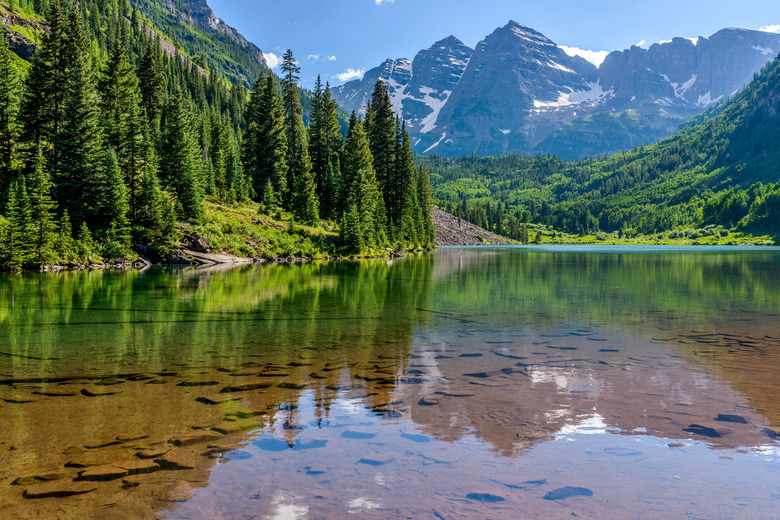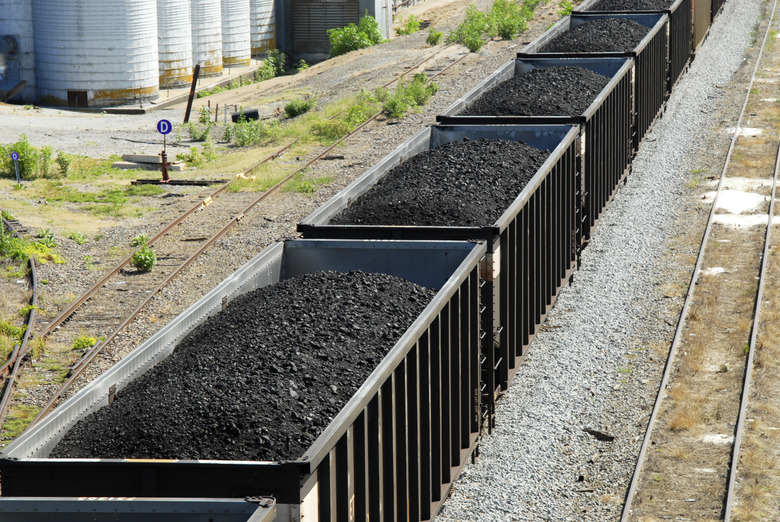List The Top 5 Natural Resources
Humanity takes from the Earth every day, and has always done so. From sipping from streams to pulling stone and wood from the earth, to the modern extraction of oil — human life and culture can only thrive because of its techniques, both old and new, to extract raw materials and turn them into things needed or wanted. However, as stewards of this planet, humans must be careful to never take too much. Some resources, like oil, are non-renewable, and still others, like drinkable water, are becoming increasingly scarce as its population rises increasingly into the billions. The list below shows some of the most important natural resources to human life and society — and the state in which they exist today.
Water
Water
Without a doubt, water is the most abundant resource on the planet. Approximately 72 percent of our planet is covered with water. The human race is crowded onto only slightly more than a quarter of our planet's surface, but without the water that consumes the rest of the space, the human race would perish. We require daily water for survival, our food is all grown with water and our bodies themselves are mostly comprised of water. Although water is prevalent on Earth, less than 10 percent of it is drinkable. The rest is salt water.
Oil
Oil
Oil is one of the most valuable natural resources in the world, and one of the most essential to our modern way of life. Our transportation and manufacturing industries are completely reliant on petroleum products. As a result, the entire face of the planet is changing as countries race to secure their oil resources. Wars have been fought over this resource in the modern era the way past conflicts arose over gold and diamonds. Concern over depleting oil reserves is one of the great challenges facing the 21st century.
Coal
Coal
Coal is still the most efficient type of fuel for heat generation. Coal is abundantl, so much so that, in the U.S., for example, there is no need to import it like other resources. In addition to the U.S., the U.K., China and India all have more coal than any other natural resource within their borders.
Forests
Forests
The forestry industry is a massive one in countries around the globe, with Canada being one example of a country with a strong dependence on the forestry industry. Every page of paper and the lumber that builds the homes that people sleep in comes from the forestry industry. Forests also provide habitat for many of the creatures on Earth, and play a critical part in providing clean air. Forestry is a renewable industry as long as the resource is managed properly.
Iron
Iron
Iron has been possibly the most important elemental natural resource on earth until the modern age's dependence on petroleum products. Iron allowed our ancestors to forge stronger weapons, build better transportation, erect taller buildings and ultimately allowed the modern world to take shape. Iron and steel are still incredibly important today. China, Australia, Brazil and Russia are all major players in the iron market.
Cite This Article
MLA
Fredrick, Hans. "List The Top 5 Natural Resources" sciencing.com, https://www.sciencing.com/list-top-5-natural-resources-8179774/. 25 April 2018.
APA
Fredrick, Hans. (2018, April 25). List The Top 5 Natural Resources. sciencing.com. Retrieved from https://www.sciencing.com/list-top-5-natural-resources-8179774/
Chicago
Fredrick, Hans. List The Top 5 Natural Resources last modified March 24, 2022. https://www.sciencing.com/list-top-5-natural-resources-8179774/





